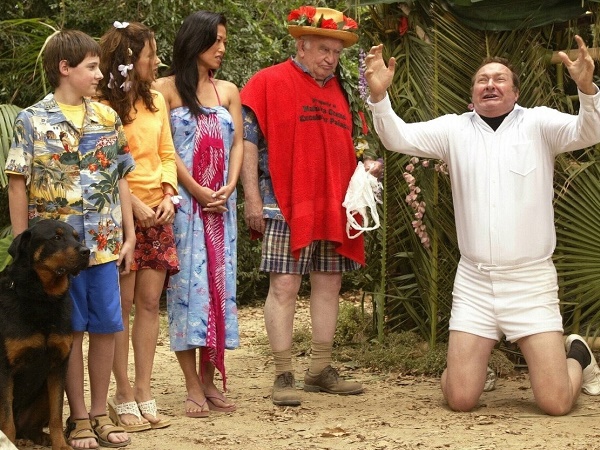
Comedy shows are great for all types of comedy. There are many forms of comedy. This article will tell you what to expect at an average show. You will also learn a lot about comedy sketch and improv. Here are some examples. No matter if you are a fan of stand-up or a geek who loves improv, there is something here for you.
Stand-up comedy
Stand-up comedy shows are not only for the stage. These shows are great for people who like to hear a unique story from a comedian. Comedy shows are similar in style to theater performances but with many stories and twists. Comedy shows can be considered live entertainment. The audience can interact with the performers and ask them questions. While comedy shows are typically short and feature just one comic, the audience can expect an uproarious show with lots of laughs and a lot of audience participation.

Sketch comedy
When it comes to creating a sketch comedy show, there are many different options to choose from. There are many options when it comes to creating a sketch comedy show. Some focus on a single character in a series of situations while others use a single theme or location. Others parody existing content. Whatever route you choose to take, your sketch must address the question: "Why are these sketches linked together?"
Improvisational comedy
Improv comedy, a type of live theatre in which performers and cast create new scenes using suggestions from the audience, is called Improv comedy. It is an exciting and thrilling experience that allows the audience to participate in the comedy chaos. It is a unique show, featuring improvised characters in unpredictable situations. It is a great place to unwind after a long work day. These are just a few of our favorite improv comedy acts.
Observational comedy
Observational comedy is an increasingly popular form of stand-up comedy, but it doesn't come naturally to everyone. Before you start watching observational comedy shows there are a few things to remember. Here are some tips that can help you make the most of these shows. These shows will be more enjoyable and you'll have more fun. Here are some tips to help make you a successful observational comedy.

Deadpan comedy
There are many forms of comedy that go beyond sketch comedy and stand-up comedy. Deadpan comedy emphasizes subtle humor and avoids obvious jokes. Deadpan comedians are often slow to register in their audience. You can easily spot them by watching the reactions from the audience. Here are some examples of shows that use this form of comedy. The Office (USA).
FAQ
What is the most prominent TV commercial?
The most common commercials focus on products people use daily, such food, clothing and household goods.
This is the most commonly used form of advertising. Product placement involves real-life objects being used to sell products.
This could be anything from showing an actor wearing a shirt made by a company to show how comfortable it would be to wear to put a brand name on a car.
These ads do not appear on TV all the time. They are sometimes found in magazines or newspapers, billboards or radio stations.
Another popular type of ad is sponsorship, which involves companies sponsoring certain programs so that they can advertise their products.
This type of advertising works well because viewers already watch a particular program. The logos of companies will help viewers remember the name of the company even if they don't know who sponsors it. Sponsorships are particularly effective for children’s shows as kids tend to pay closer attention to logos.
Advertising is also known as branding. Companies use branding to make themselves look good. This can range from awarding celebrities with their name to making sure that everyone knows about your company.
It is vital that companies are well-known in order to establish a brand. It is important to project a positive image of yourself if you want fame.
Branding can take many forms. This could include creating a logo or having a spokesperson.
One of the best ways to brand yourself is through music. Many listen to radio songs all day. People may begin singing your song around the town if you have a catchy tune.
If you do this, you can get free publicity!
What time does it take to get commercial air?
Commercials can air at different times throughout a day. Some commercials run during the day while others air in the evening.
Most commercials are aired within an hour or less.
How much does it cost for a commercial to be produced?
Production costs money for a commercial. The cost depends on the length and number of actors involved as well as the location where it is shot.
A 30-second commercial usually costs $20,000-40,000.
Statistics
- Television is a great brand awareness tool - Almost every American has a television, with 83 percent of adults having two or more, and American households keep their televisions on for 8.1 hours each day on average. (marketingevolution.com)
- In fact, 76% of people completely skip the commercials while watching their programs. (qualitylogoproducts.com)
- To get estimated costs for airing a 60-second TV commercial in different regional markets, check out the following figures in this TV ad pricing chart from the media experts at Casual Precision. (fitsmallbusiness.com)
- 93 percent of American adults listen to the radio over the course of the week. (marketingevolution.com)
- Video-ad views on OTT (over-the-top) devices grew 63% year over year in Q3 2016, and the trend is expected to continue, further crippling traditional TV advertising. (clearcode.cc)
External Links
How To
How does the TV Advertising Industry function?
Many companies make up the TV advertising industry. They all need to work together to ensure the ads are shown at the correct time and place to maximize their effect. Ads that are not offensive or relevant to viewers must also be considered.
The media buying agency buys the airtime directly from the networks. The media buying company then sells this airtime to advertisers. This is how advertisers pay for airtime. You can either buy whole days or specific timeslots.
Once the airtime is bought, the media buying company sends the advert to the network. The network will then show the advertisement during its broadcast time.
The viewer may click the link to go to the advertiser's site if they watch the ad. If the advertiser clicks on that link, the media buyer company is then repaid.
The process continues up until the advert is done. After the advertisement has ended, the media buying firm collects the money and passes it on to the network.
Advertising agencies create the ads and send them to the media buying company. They manage the creative aspect of the campaign.
They also manage the creative side and liaise with the client about the content of the ad. They manage the production of ads and communicate with clients about the budget.
They supervise the entire campaign, and keep track.